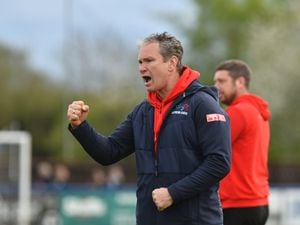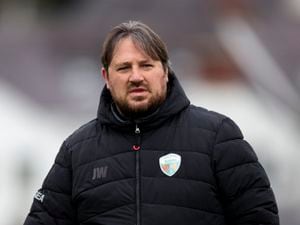Matt Maher: Football may never be the same again
In a world where currently little feels certain, some truths are still assumed.
One of those is the positive impact sport’s return – perhaps as early as next month – will have on the public mood.
“I think it will lift the spirits of the nation” proclaimed foreign secretary Dominic Raab during Tuesday’s Downing Street briefing.
Raab’s words were the closest any senior minister has come to clarifying the government’s position on restarting the sporting season, though frankly their stance has been obvious for at least a couple of weeks.
The Premier League’s Project Restart might still have several significant hurdles to clear but it would never have gotten this far down the course without Whitehall’s backing.
That is something worth bearing in mind for those who believe to even talk about a resumption is premature.
On that note, would sport’s return really lift spirits? Can the government really be so sure?
It is certainly difficult to discern any huge appetite for it right now, at least judging by the comments which greet every social media post with the latest update on a possible resumption.
In a country where the daily death toll still extends well into the hundreds, it is not hard to understand why so many find the discussion alone distasteful.
Yet even leaving aside the moral question, considerable though it undoubtedly is, there is another issue to consider.
Namely that, even should football return next month, it will not be as we know it.
Instead it will take place free of atmosphere, in virtually empty stadia, absent the spectators responsible for providing the colour and the sound so often taken for granted.
It will, to put it bluntly, be nowhere near as good as we remember it. Clubs and more particularly broadcasters know this. Why else do you think there is talk of pumping noise into empty stadiums or, as one report this week suggested, letting supporters use an app to send ‘virtual’ cheers (or boos) to their team?
Such gimmicks might put a bit of polish on an inferior product and go a little way to keeping fans engaged.
It feels fair to presume, meanwhile, that after weeks without any live sport, seeing it back on screens would provide an initial boost, if only for signposting another step back toward something like normality.
Yet it also seems fair to guess it might quickly wear off, particularly for those for whom attending football matches is simply a way of life.
“Behind-closed-doors matches just aren’t very good,” says John Homer, chairman of Albion Supporters’ Club.
“Football is a spectator sport and without spectators you do have to wonder what the point of it all is? The players need us, for one thing. They feed off the crowd.”
Homer’s view is that the existing season should only resume when it is safe for the crowds to return, whenever that might be.
It is a viewpoint shared by many fans groups including the Villa Supporters’ Trust, who last month wrote to the club’s chief executive Christian Purslow to make their feelings clear.
Clubs would argue the financial reality makes such a scenario impossible. The debate is, of course, slightly different for those in Leagues One and Two, where a discussion on the merits of even bothering to resume without fans is likely to take place.
Yet in the Premier League, which is motivated first and foremost by the need to satisfy its broadcasting contract, and in the Championship, where clubs gamble so much on being part of the former, the idea of an extended break is a non-starter.
That is why the so far excellent seasons of Albion and Wolves, if they are to be finished, will be done so behind locked turnstiles.
Perhaps the greater concern might be just how much of next season supporters get to see?
FA chairman Greg Clarke admitted earlier this week it was difficult to see fans being allowed back into grounds in the foreseeable future. What if the ban on crowds extends beyond the end of the year?
For Albion, that could mean missing out on a chunk of a Premier League season. For Wolves, who have already felt the thrill of their Europa League adventure abruptly halted, the stakes are even higher. Nuno Espirito’s team are still in the hunt for a Champions League spot.
“It would be a bit like marrying Sophia Loren and having separate bedrooms,” remarked Homer, when reflecting the Baggies’ viewpoint.
Even in the best-case scenario, with fans returning to stadiums in the autumn, it seems unlikely all would choose to return.
Health concerns will not be the only factor. For some it will simply be a case of a changed perspective, having lived through an unprecedented era when all of us have had to reassess our lives, our behaviours and our priorities.
It might sound somewhat pessimistic, yet while it is not currently top of their agenda, privately clubs are already talking about the long-term impact of reduced crowds and interest from a society which may look very different.
“Somewhere along the way there will be people who have been going down The Hawthorns for years who won’t go back,” said Homer.
“People have had a lot of time to reflect and think about what really matters. At the end of the day, it is only football. There are people who will come out the other side of this and find there are other things they want to do on a Saturday afternoon.”
Sport and football might well return, in some guise, a few weeks from now. Whether it will ever be back in the way we remember it is a far deeper question to which there is no easy answer.





